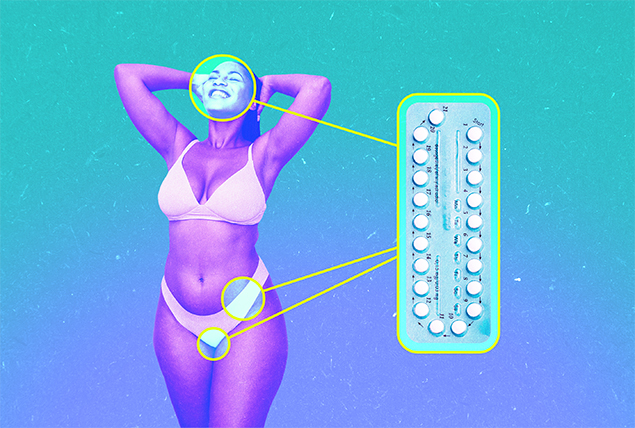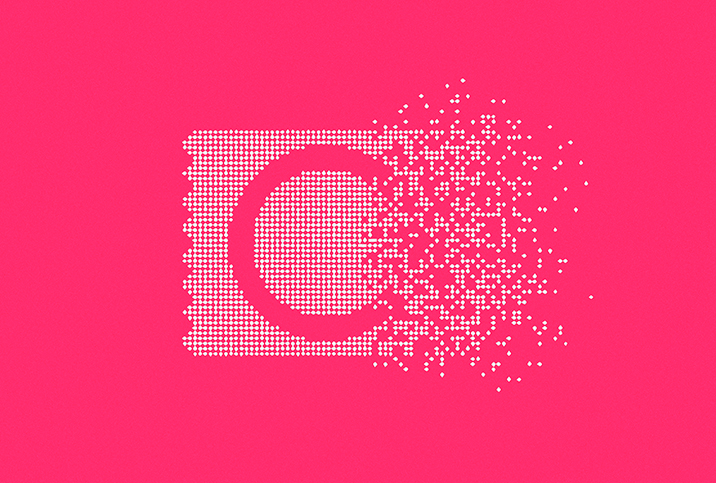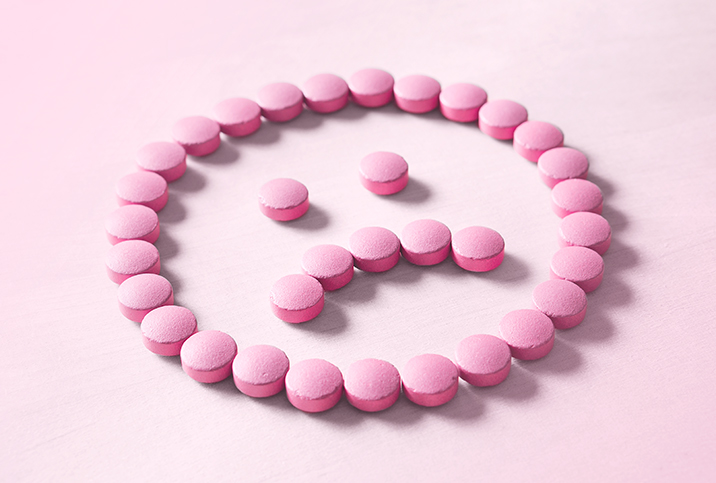Birth Control Uses Other Than Contraception

Birth control pills are well known for their contraceptive properties. When taken regularly, birth control pills can be 99 percent effective at preventing pregnancy.
However, birth control is not just for sexually active people. For many people, birth control can help ease the impact of other health conditions.
Noncontraceptive reasons to take birth control
A 2011 report by the Guttmacher Institute, a research and policy organization, found 1.5 million women take oral contraceptive pills solely for noncontraceptive purposes.
Sophia Yen, M.D., M.P.H., co-founder and CEO of Pandia Health in California, said most people use birth control for contraceptive purposes in conjunction with an effort to curb other health symptoms.
Seventy percent of people using the birth control pill are also using it for reasons such as acne, premenstrual syndrome (PMS), premenstrual dysphoric disorder (PMDD), polycystic ovary syndrome (PCOS), endometriosis, heavy or painful periods, or just to make periods optional, Yen said.
Birth control for period symptoms
Menstrual pain and heavy periods are extremely common in the United States. Heavy menstrual bleeding impacts more than 10 million women in the United States annually, according to the Centers for Disease Control and Prevention (CDC).
"The number one cause of anemia in a menstruating woman is menstruation," Yen said.
Birth control can be highly effective for combating period symptoms.
"The birth control pill, patch, ring, hormonal IUD, implant, shot, all make periods lighter," Yen explained, adding that 30 percent of women, or up to 70 percent of women on the hormonal IUD implant, lose their periods, and many report high satisfaction rates.
Birth control can positively impact periods by regulating hormones and decreasing the hormonal fluctuation that can cause irregular or heavy periods, explained Cristin Hackel, B.S., R.N.C., a nurse practitioner in Maryland who works for Nurx, a telemedicine company.
"Often, using a low-dose birth control causes bleeding to get very light or stop completely, even if that wasn't intended. The low-dose hormones cause very little to build up in the uterus, so there is little to nothing to shed when it's time to bleed," Hackel said. "This can be startling or upsetting to someone if they're used to getting a period or concerned about pregnancy, but it's not a medical concern or risk."
Hackel explained that birth control could also help alleviate many other period side effects, such as ovarian cysts, menstrual headaches and acne. Birth control can help reduce period-related anxiety and prevent its interference in day-to-day life.
"[There can be] less worry about accidents happening, where their period may start early or be so heavy to soak through clothing. For those who want to skip periods, they get the added benefit of not needing to buy pads or tampons and save money," Hackel said.
Birth control for PCOS and endometriosis
PCOS is a common hormone disorder causing the ovaries to enlarge and affects about 1 in 10 women, Yen said. She explained that birth control can be used to treat PCOS, prevent cyst formation and prevent endometrial cancer in PCOS patients.
Combined hormonal birth control pills containing birth progestin and estrogen work best for managing PCOS, according to the American College of Obstetricians and Gynecologists (ACOG). The hormones help with symptoms associated with PCOS, such as regulating bleeding, excessive hair growth and acne.
For endometriosis, a disease where endometrium-like tissue grows outside of the uterus, research suggests that the type of birth control impacts endometriosis management. Birth control can't cure endometriosis, but it could help in other ways.
A 2017 study found progestin-only pills may be a better treatment for pain associated with endometriosis. Typically, medications using estrogen and progestin are prescribed to help ease endometriosis symptoms. These medications can include the vaginal ring, pill and patch.
Birth control for acne
For period acne or nonperiod acne, birth control may be a boon. Yen explained that birth control could help acne related to periods, but people sometimes take it for nonperiod-related acne. Birth control can help decrease acne by potentially reducing androgen levels and decreasing production of sebum, an oily substance produced by glands.
A 2013 research report indicated that birth control pills have the ability to improve both inflammatory and noninflammatory acne. According to the report, oral contraceptives that reduce acne contain ethinyl estradiol, combined with either levonorgestrel, norethindrone, norgestimate, drospirenone, cyproterone acetate, chlormadinone acetate, dienogest or desogestrel. Ethinyl estradiol is a synthetic form of estrogen.
Birth control could reduce health risks
The birth control pill, patch and ring may lower your potential risk of ovarian, endometrial and colorectal cancer, Yen said. The longer someone uses birth control, the more the risk is reduced.
"The shot, implant or hormonal IUD can decrease your risk of endometrial cancer. To prevent ovarian cancer, using birth control pills, the patch or ring for five years decreases your chances of ovarian cancer by 50 percent," Yen said.
Yen added that bleeding increases the risk of endometrial cancer, and ovulation increases the risk of ovarian cancer.
Birth control misconceptions
While birth control is highly effective and safe, myths and misconceptions surround its use.
"There are still a lot of old wives' tales and misconceptions about using birth control," Hackel said. "People still worry that it will decrease their fertility or ability to get pregnant one day, and that is not true. For most options, fertility returns immediately. Some longer-dose options, like Depo [shots], take a little longer to completely leave the system.
"Birth control helps many people manage their periods easier and not feel like the clock is ticking until the next period arrives in a month or so," she continued. "They can live their lives easier with less stress and pain and not have to worry about their monthly cycle as much."
The bottom line
The benefits of birth control for alleviating a variety of symptoms are far-reaching. For some people with preexisting conditions, birth control is a convenient option to help reduce or control symptoms. Depending on your symptoms, a healthcare provider can help determine which birth control option might be right for you.
If you need access to a healthcare professional, try Giddy Telehealth. Access hundreds of healthcare providers in a range of specialties from one easy-to-use online portal. Many offer same-day appointments.


















